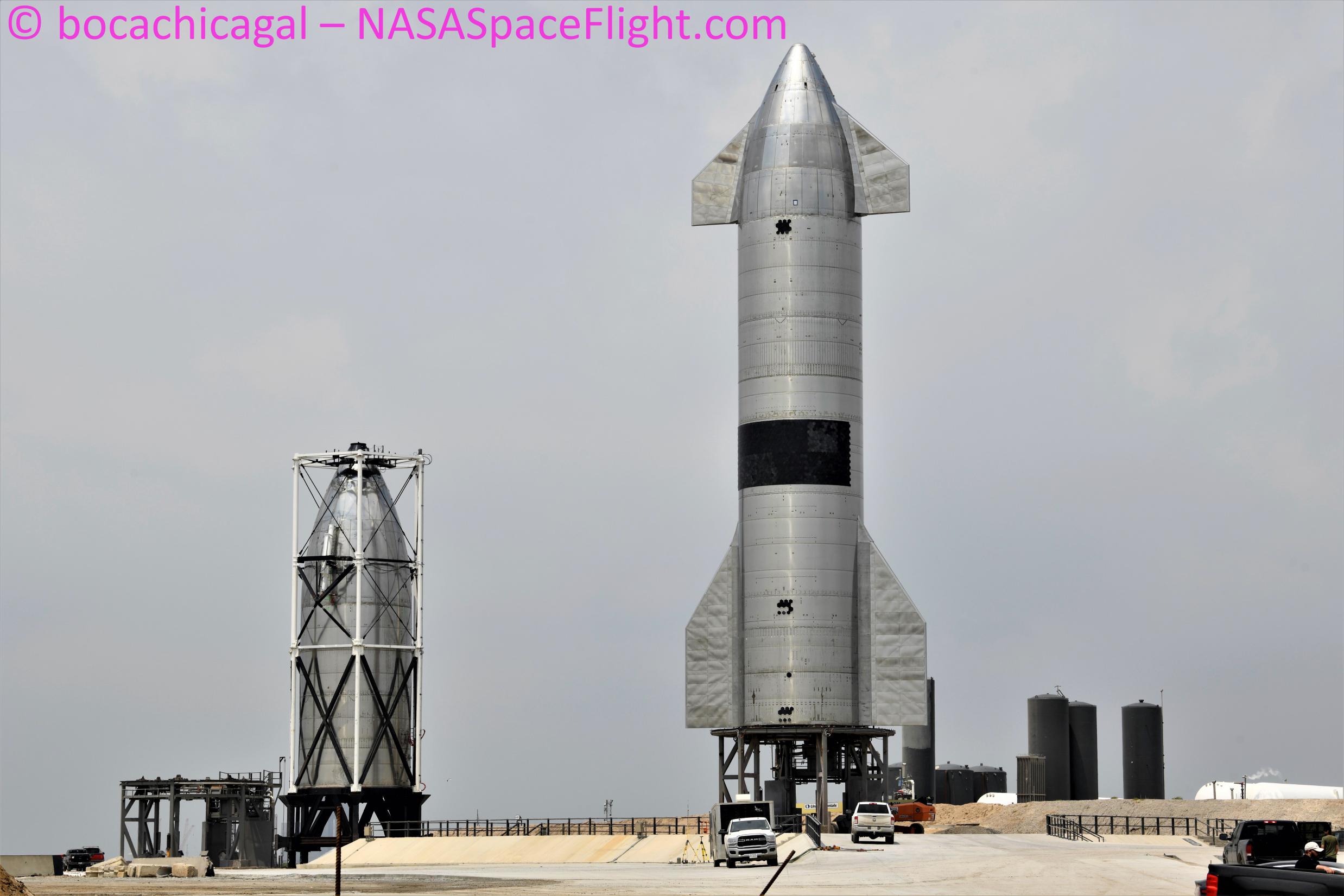
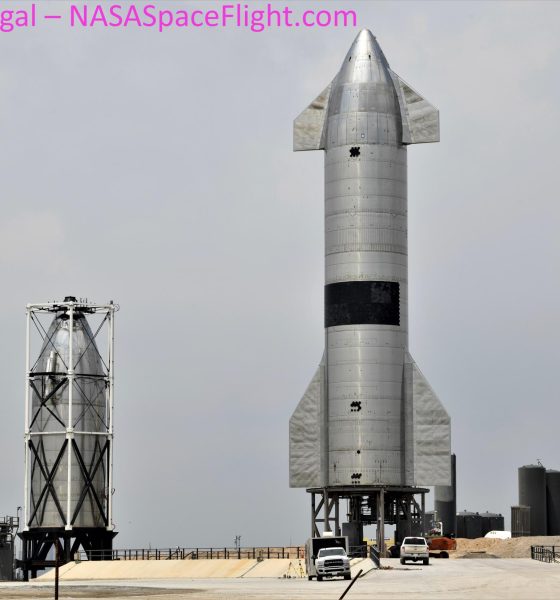
News
SpaceX’s upgraded Starship tracking towards Wednesday launch
Update #2: A little over 24 hours after SpaceX’s 25th operational Starlink launch, the company’s first significantly upgraded Starship prototype is tracking towards a launch debut this Wednesday afternoon.
All that’s missing is SpaceX’s official confirmation. Boca Chica Village has already been evacuated and the company appears to be in the process of clearing the launch pad of personnel as of 2pm CDT – two hours into a window that closes around 8pm CDT (01:00 UTC, May 6). Stay tuned for a possible Starship launch later today!
Update: SpaceX has called off Starship SN15’s Tuesday, May 4th launch attempt for unknown reasons. The rocket is now scheduled to fly no earlier than (NET) Wednesday, May 5th – perhaps just ~24 hours after the company’s 25th operational Starlink launch.
Barring delays, SpaceX appears to be on track to launch a batch of 60 Starlink satellites and perform a fifth high-altitude Starship flight test mere hours apart on Tuesday, May 4th.
Around 1am on May 3rd, SpaceX completed a successful wet dress rehearsal (WDR) and static fire test with Falcon 9 booster B1049, an expendable upper stage, and the latest stack of Starlink satellites. Around eight hours later, as per usual, SpaceX confirmed via social media that the test was a success and that its 25th operational Starlink mission is scheduled to launch no earlier than 3:01 pm EDT (19:01 UTC) on Tuesday, May 4th.
Simultaneously, after a handful of delays, SpaceX also appears to be on track to attempt the first launch of a Starship with “hundreds of improvements” sometime between ~1pm and ~8pm CDT (18:00-01:00 UTC) on the same Tuesday.
Starlink-25 will be SpaceX’s second daylight Falcon 9 launch in months – rare as of late due to arcane specifics of the constellation’s orbital mechanics. Aside from generally offering a much better view of the launch, Starlink-25’s 3:01 pm EDT launch target means that Falcon 9 and Starship SN15 could technically launch at the exact same time in Florida and Texas.
While it’s unlikely if SpaceX would actually allow truly simultaneous launches and unclear if such a thing is even possible, it is possible that SpaceX could launch Starship SN15 at some point in the ~50 minutes Starlink-25 will be quietly coasting in orbit. More likely, though, SpaceX will use Starship SN15’s eight-hour window and wait until Starlink-25 is complete unless some kind of encroaching weather system shrinks that window to a few hours.
That still means that Starlink-25 and Starship SN15 could launch less than six hours apart, though it’s far more likely that the experimental rocket prototype will suffer minor delays and grow that gap to a day or two. Additionally, SpaceX itself cautions that it’s “keeping an eye on weather in the [Starlink-25] recovery area,” meaning that conditions at sea could also delay the Starlink launch a day or two.
Ultimately, it looks likely that both rockets will launch before the week is out. Stay tuned to find out just how ‘back to back’ they’ll actually be.

News
LG Energy Solution pursuing battery deal for Tesla Optimus, other humanoid robots: report
Optimus is expected to be one of Tesla’s most ambitious projects, with Elon Musk estimating that the humanoid robot could be the company’s most important product.
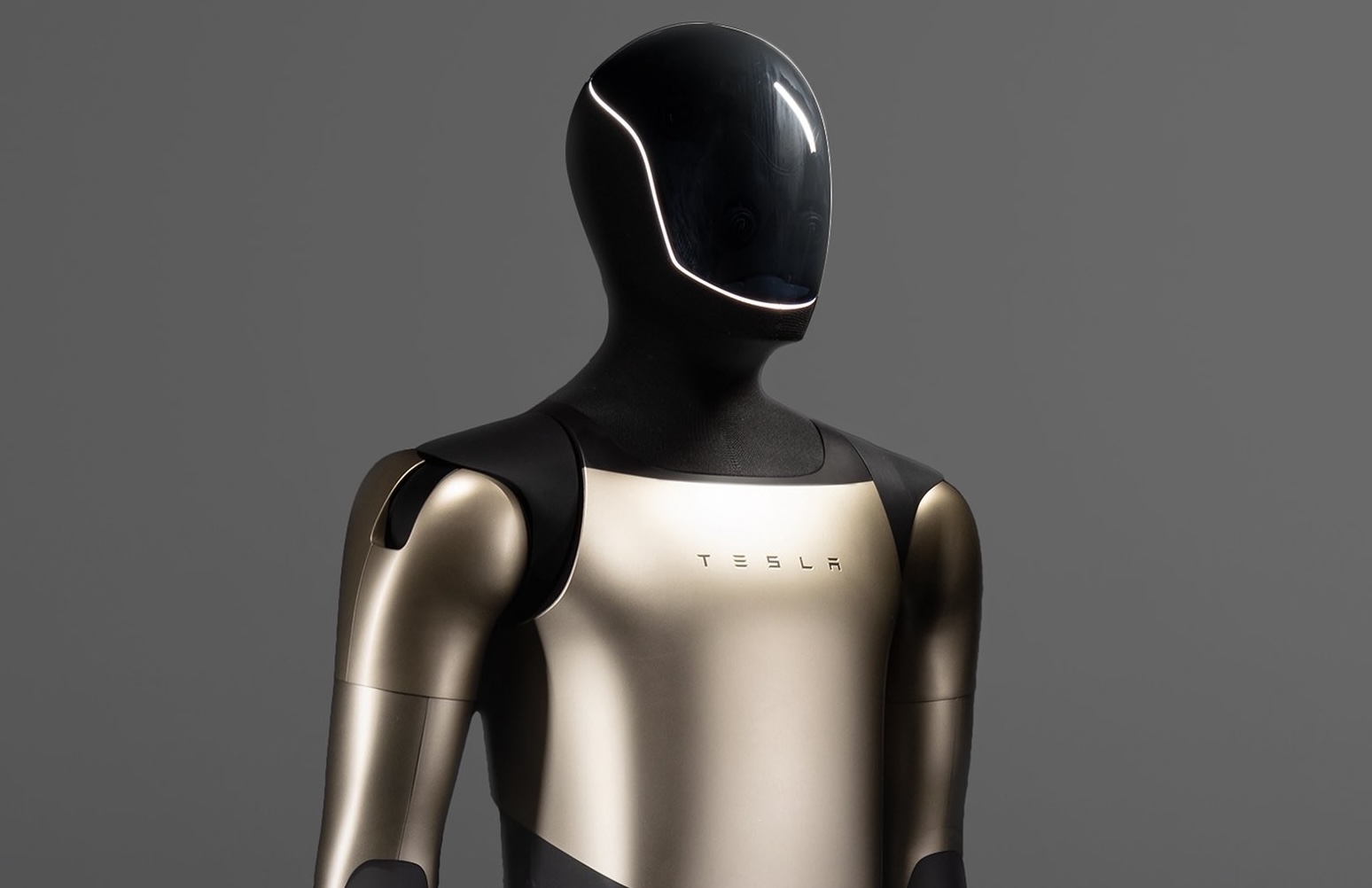
A recent report has suggested that LG Energy Solution is in discussions to supply batteries for Tesla’s Optimus humanoid robot.
Optimus is expected to be one of Tesla’s most ambitious projects, with Elon Musk estimating that the humanoid robot could be the company’s most important product.
Humanoid robot battery deals
LG Energy Solution shares jumped more than 11% on the 28th after a report from the Korea Economic Daily claimed that the company is pursuing battery supply and joint development agreements with several humanoid robot makers. These reportedly include Tesla, which is developing Optimus, as well as multiple Chinese robotics companies.
China is already home to several leading battery manufacturers, such as CATL and BYD, making the robot makers’ reported interest in LG Energy Solution quite interesting. Market participants interpreted the reported outreach as a signal that performance requirements for humanoid robots may favor battery chemistries developed by companies like LG.
LF Energy Solution vs rivals
According to the report, energy density is believed to be the primary reason humanoid robot developers are evaluating LG Energy Solution’s batteries. Unlike electric vehicles, humanoid robots have significantly less space available for battery packs while requiring substantial power to operate dozens of joint motors and onboard artificial intelligence processors.
LG Energy Solution’s ternary lithium batteries offer higher energy density compared with rivals’ lithium iron phosphate (LFP) batteries, which are widely used by Chinese EV manufacturers. That advantage could prove critical for humanoid robots, where runtime, weight, and compact packaging are key design constraints.
News
Tesla receives approval for FSD Supervised tests in Sweden
Tesla confirmed that it has been granted permission to test FSD Supervised vehicles across Sweden in a press release.
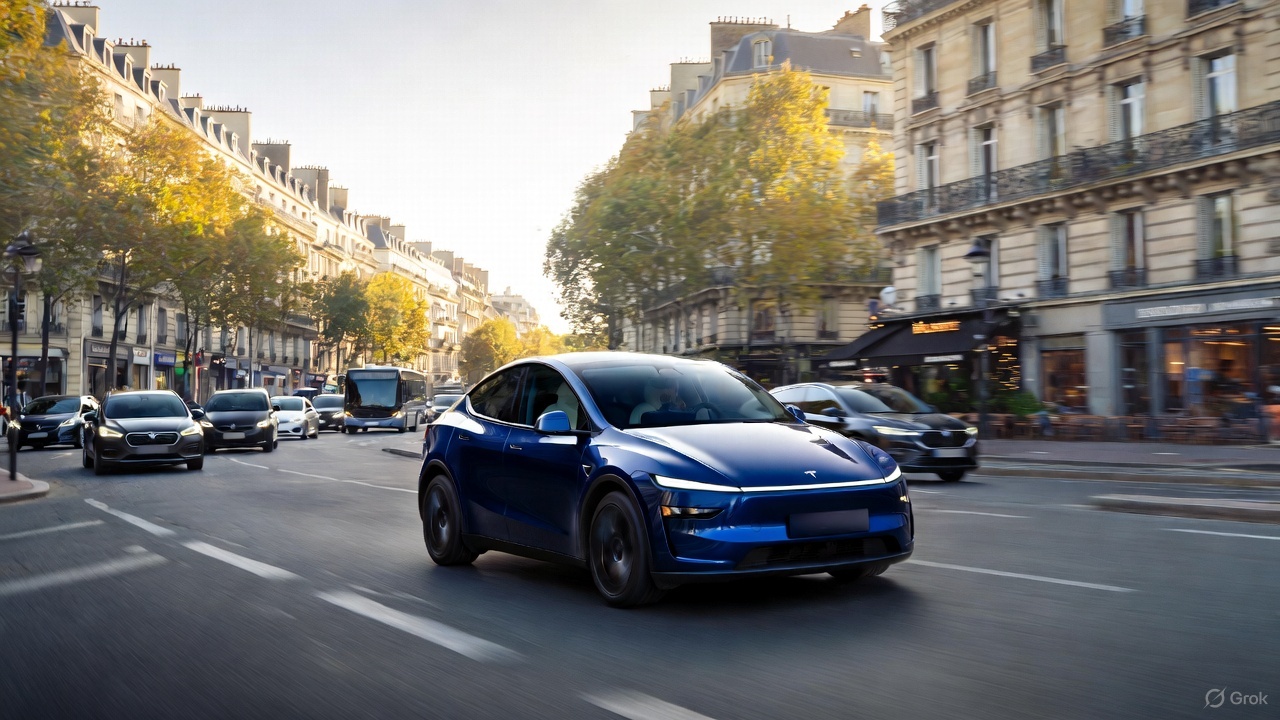
Tesla has received regulatory approval to begin tests of its Full Self-Driving Supervised system on public roads in Sweden, a notable step in the company’s efforts to secure FSD approval for the wider European market.
FSD Supervised testing in Sweden
Tesla confirmed that it has been granted permission to test FSD Supervised vehicles across Sweden following cooperation with national authorities and local municipalities. The approval covers the Swedish Transport Administration’s entire road network, as well as urban and highways in the Municipality of Nacka.
Tesla shared some insights into its recent FSD approvals in a press release. “The approval shows that cooperation between authorities, municipalities and businesses enables technological leaps and Nacka Municipality is the first to become part of the transport system of the future. The fact that the driving of the future is also being tested on Swedish roads is an important step in the development towards autonomy in real everyday traffic,” the company noted.
With approval secured for FSD tests, Tesla can now evaluate the system’s performance in diverse environments, including dense urban areas and high-speed roadways across Sweden, as noted in a report from Allt Om Elbil. Tesla highlighted that the continued development of advanced driver assistance systems is expected to pave the way for improved traffic safety, increased accessibility, and lower emissions, particularly in populated city centers.
Tesla FSD Supervised Europe rollout
FSD Supervised is already available to drivers in several global markets, including Australia, Canada, China, Mexico, New Zealand, and the United States. The system is capable of handling city and highway driving tasks such as steering, acceleration, braking, and lane changes, though it still requires drivers to supervise the vehicle’s operations.
Tesla has stated that FSD Supervised has accumulated extensive driving data from its existing markets. In Europe, however, deployment remains subject to regulatory approval, with Tesla currently awaiting clearance from relevant authorities.
The company reiterated that it expects to start rolling out FSD Supervised to European customers in early 2026, pending approvals. It would then be unsurprising if the company secures approvals for FSD tests in other European territories in the coming months.
News
Tesla owners in Sweden get direct attention from pro-union groups
As part of their efforts, the group has started distributing informational leaflets to Tesla vehicles across Stockholm, urging them to pressure the electric vehicle maker to sign a collective agreement.
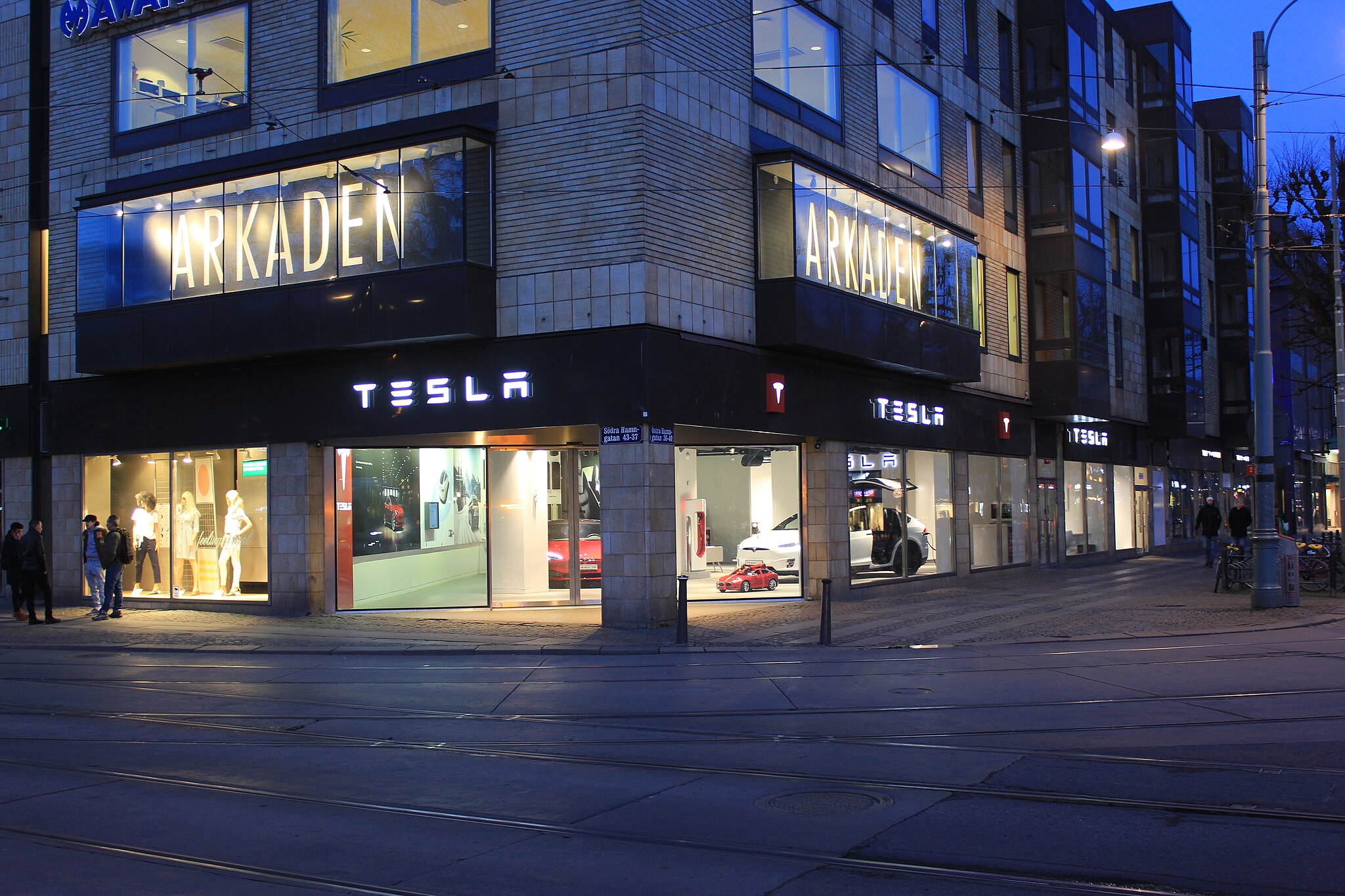
Amid Tesla Sweden’s ongoing conflict with trade union IF Metall, a group of pro-union supporters has begun directing their attention to actual Tesla owners.
As part of their efforts, the group has started distributing informational leaflets to Tesla vehicles across Stockholm, urging them to pressure the electric vehicle maker to sign a collective agreement.
Leaflets on parked Tesla vehicles
As noted in a Dagens Arbete (DA) report, participants of the protest place yellow information slips on parked Tesla vehicles across parts of Stockholm. The slips resemble parking notices that contain information related to the unions’ ongoing strike against Tesla Sweden.
Participants involved in the activity said the leaflets were intended to inform consumers rather than target individual owners. The action was carried out in public areas, with leaflets placed on windshields of parked vehicles. When vehicle owners are present, organizers said they provide verbal explanations of the labor dispute.
Tesla has not commented publicly about the matter as of writing.
Recurring demonstrations against Tesla
The leaflet distribution effort follows weekly demonstrations that have taken place outside Tesla’s workshop and office in Upplands Väsby, where protesters typically gather to express support for a collective agreement. Those demonstrations have included informational outreach to customers and workers and, at times, police presence, according to prior reporting.
In a comment, one of the protesters stated that even Tesla owners must be concerned about the unions’ conflict with the electric vehicle maker. “You may think it doesn’t concern you, as you only drive a car. But it does, as we all have a responsibility for the rules in Sweden.
“We are not looking to hunt down individual Tesla owners. Rather, this is a way to spread opinion and increase pressure on Tesla. It should have some impact if several Tesla owners come in and say that you should sign a collective agreement,” one of the protesters stated.








